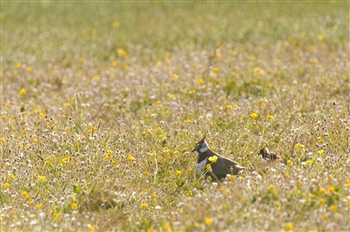Guest post by Paul Walton, Head of Habitats and Species in Scotland

Lapwing with chick in machair, South Uist. copyright Chris Gomersall (RSPB images)
In November 2008, we in the Species and Habitats team at RSPB Scotland were living in a febrile world created by the simultaneous appearance of a looming deadline, and a mountain to climb.
We were racing to pull together the funding package for a major four…